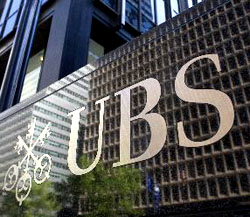Swiss banker causes row with French financiers
 Geneva - A senior private banker has sparked a row with foreign financiers in Switzerland at a time when the entire sector is at a tipping point, suggesting they would sell their assets and branches in Switzerland.
Geneva - A senior private banker has sparked a row with foreign financiers in Switzerland at a time when the entire sector is at a tipping point, suggesting they would sell their assets and branches in Switzerland.
Patrick Odier, a senior partner at the private bank Lombard Odier, one of the largest asset managers in Switzerland, said French banks would get rid of their local branches, following promises from Paris to crack down on secret accounts.
Last month, France's Budget Minister Eric Woerth made headlines when he said he was holding onto data of 3,000 Swiss accounts owned by French taxpayers. He said many of them were of tax dodgers and that he would continue to search for more such accounts.
It was unclear how he obtained them exactly, though details which have emerged since, including an article Wednesday in the Geneva- based Le Temps newspaper which quoted unnamed sources, imply the French tax authorities traced money transfers to Switzerland and audited Swiss banks with branches in France.
Switzerland is in the process of renegotiating its double taxation agreements with over a dozen countries, to get itself off a "grey list" of so-called tax havens.
Odier is set to become the head of the Swiss Bankers Association later this month, giving a greater echo to his comment about a sell- off, made in an interview published over the weekend.
Martin Maurer, the head of the Association of Foreign Banks in Switzerland struck back, saying Odier was simply a competitor trying to gain acquisitions or clients.
According to Tribune de Geneve daily, Maurer said that a recent spate of sell-offs by German banks of their Swiss branches was connected to problems at the parent company and had nothing to do with crackdowns on tax evaders.
The United States, France and Germany are seen as leading the fight against tax havens.
Switzerland has allowed its biggest bank, UBS AG, to start the process of transferring to the US authorities information on some 4,500 accounts last month, on top of another
250 earlier this year. UBS had admitted its employees had tried to help clients evade paying taxes in the US.
The normally tight banking secrecy rules in the Alpine land prevent any disclosure of client information, unless there is clear and specific evidence of fraud, though this is changing.
As Switzerland agrees to relax its banking secrecy rules, Ivan Pictet, senior managing partner at Pictet & Cie, the largest such private Swiss bank, told Bilan, a local magazine, that margins in his industry could be under pressure for up to three years as the transition takes place.
Switzerland's banks are believed to manage nearly a third of the world's approximately 7 trillion dollars of off-shore private wealth.(dpa)